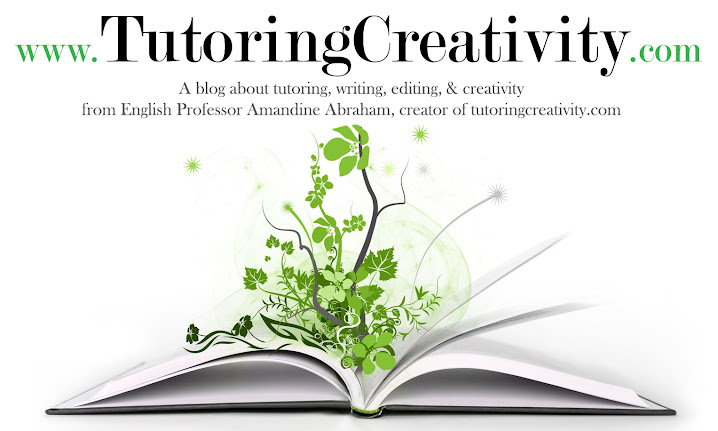
Much of my curriculum development focuses around letting students choose topics THEY want to write about. Once I explain this the image on the right will make much more sense. Letting students choose their own research topics is done for two main reasons:
1. The more invested they are in their own interests, the more that dedication can transfer into their research. Thus, the more they learn about both the writing process and their own interests.
2. I don't have to read 100 essays about the same topic.
Many times this is difficult for students because they've never had the freedom to write about and research their own interests. Students are also encouraged (and required by the end of the semester) to translate their interest into a publishable format. There tends to be a universal school of thinking that publishing belongs to authors and writers and Professors. But publishing belongs to students who SHOULD think of themselves as writers.
I constantly ask my students what they think about previous writing and English classes and their experiences with creativity. Their response is consistently one of the following options:
1. I hate English classes, they make me feel stupid
2. I've never been good at writing
3. I don't consider myself a creative person
To me, this is devastating. During the time I've been teaching I've had the opportunity to work with incredibly talented and creative students. Currently, I have student I'll call 'T', who expressed his hatred of English classes the first day of class. T is a science guy. He's science minded, sees everything logically and offers amazing perspective to other students. Over the course of the semester we've worked together to focus his writing on his science interests. On three separate occasions he's sat in my office and said,
"I've never been told I'm good at writing. I'm bad at writing."
Yet, this is one of the most talented students in my class. This begs the question of
just what is being taught in K-12 English and Creative Writing classes? Where did the confidence of our students go?
I'm curious to hear about your experiences and how you feel about writing. What is/was it like for you in your English classes?
My students have come up with some of the most interesting and complex communities to research. Some of their topics have included:
1. "Gaming Culture" and its impact on learning development.
2. Small Business startups: what's effective?
3. Plastic Surgery Advertising/Television Programming and its Effect on Adolescent Girls.
4. How Fast Food Restaurants Effect Family Development
5. Lolita Fashion Culture and its Origins
6. Academic LGBT Culture: Common Misconceptions
7. Homeschooling: Why?
The end of every semester we have The Celebration of Student Writing where students from almost all of Eastern Michigan University's design and develop an interactive presentation based on their collective research. My class is always on a bit of the wild side. I blame myself (ha!).
In a previous semester, one of my classes chose to create a life-size interactive Monopoly Board. Each square was renamed after their research topic. For example, instead of 'Park Place' it was 'Homeschooling Place'. Every time a participant rolled the dice and landed on their square, that student would come forward and talk about their research. THEN, the participant got lots of candy. One of my tallest and shyest students dressed up as the Monopoly guy. By the end of the evening, he was standing on a chair screaming, "COME PLAY MONOPOLY" and shaking his plastic monocle at passerby's. See image below:

Last semester my students decided to make a full blown interactive Nintendo game board. They also chose to dress up like their chosen communities of interest. See picture of Rockstar, "Mike Huckabee", and the guy that didn't dress up and brought a tri-fold board (I am completely against tri-fold boards) who had to wear it. That's right, we made him wear and make the tri-fold board interactive. Every time someone would push the button he would make a Mario Brothers sound or phrase and then explain the classes project to innocent passerby's. See image above.
In my classes, its important that students are able to maintain a level of independence. I want them to know that their interests are supported and that they are in fact, creative and brilliant writers.






